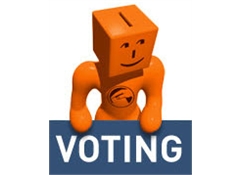Commentaries
Comparing polls
14 May 11

Some bloggers supporting various political parties are asking why Horizon's party vote poll results differ from other polls.
They point out that other polls, mainly conducted by phone, have National about 20% ahead of Labour. Horizon's polls show a lesser margin, for example, 9.7% on May 14 and 13.8% in April 2011.
They therefore claim Horizon's methodology must be faulty, and the HorizonPoll national panel is "self-selected".
However, there is no apples-with-apples comparison.
And the HorizonPoll panel is not self-selected.
Most of the telephone pollsters are reaching 1000 respondents and expressing the about 69% who have a party vote preference as a percentage of 100.
They exclude undecided and won't say respondents.
They therefore are not expressing a complete picture of the 18+ adult population.
People are invited to join the HorizonPoll national online research panel based on the profile of the population at the 2006 census. The panel is, therefore, not self-selected.
Less than 5% of the panel is self-enrolled and an iterative rim weighting system, using up to six factors at one time, including party vote 2008, ensures results are robust within the confidence levels stipulated.
Other pollsters, where they publish what factors they are weighting on in order to make their results representative, appear not to be weighting on 2008 party vote. This opens up room for any larger sampling of any particular parties' voters to possibly affect results.
Horizon also usually uses sample sizes of 1800 or higher, to provide greater reliability in assessing the vote for minor parties. This is important in a MMP environment, in which minor parties have been determining which main party can form a coalition government.
Horizon's party vote results are weighted and expressed as a percentage of the adult population aged 18+ (after filtering by registration and intention to vote detailed below).
National won 32.9% of adult population votes in 2008, Labour 25%, Act 1.7%, NZ First 3%, Green 4.9%, other parties 3.1%. Some 26.7% did not vote.
Horizon can also analyse the intentions of this significant non-voter group.
At April 2011 it appeared about 60,000 of them were again expressing a party vote preference and were intending to vote. This too could have a major bearing on the outcome of the November 26 general election.
Horizon's produces what we call a Net Potential Vote poll.
We take the responses of decided voters, as others do. We also ask the undecided group, which has been varying in size between 12.8 and 23%, if they have a preference.
These preferences are added to the decided group - and then those who are not eligible to vote (so can't) are excluded, along with those who definitely will not or may not vote.
The results we publish are therefore for decideds + undecideds with a preference - all of whom are on the electoral rolls and say they are likely to or will definitely vote.
For further information please contact:
Grant McInman
Manager, Horizon Research
Telephone: +64 (21) 076 2040
The reasons why Horizon Research party vote poll results vary from other polls.


